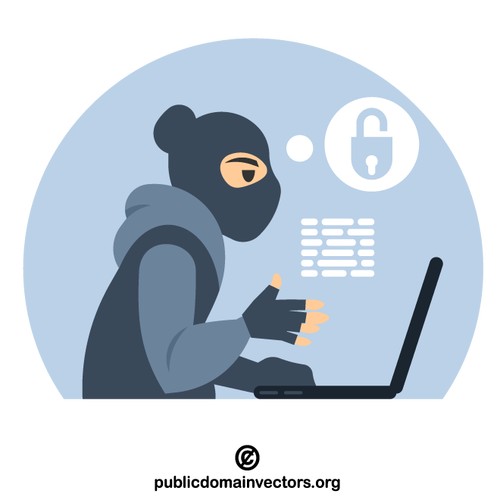Cybercrime refers to criminal activities performed over a computer or network. It includes hacking, phishing, identity theft, and ransomware attacks.
Have you ever thought that even the best things come with cons? It is the same with the internet as well. While it has revolutionized our lives, it is also the most drastic weapon that has ever been made. Our every minute-to-minute detail is available online and can be misused if we are not cautious. From fake emails pretending to be our bank to random Instagram messages offering free iPhones, it’s pretty clear that cybercrime isn’t just something that happens to big companies anymore.
It’s happening to regular people. People like you and me. Cybercrime cases have shot up like crazy over the past few years. Some experts even say it’s one of today’s fastest-growing threats.
But don’t get scared. There is good news.
We don’t need to be cybersecurity experts to protect ourselves. A few smart habits can make a huge difference. Let’s talk about five simple ways to stay safer online starting today.
Let’s be real.
Most of us are still guilty of using easy passwords. (I used my dog’s name and birth year for way too long.) But here’s the thing — weak passwords are an open door for hackers.
They love easy targets. So, the first thing we can do is to use longer passwords, with some special characters, and avoid anything personal like our kids’ names or our birthdays.
And if remembering all your new passwords feels impossible, you’re not alone. Password managers are a lifesaver — they keep everything stored securely so you only have to remember one master password.

Those “Update Now” pop-ups were always annoying. They always showed up at the worst time, right? But updates aren’t just about getting new emojis or fancy features. They often fix major security holes that hackers are actively trying to exploit.
So if your phone or laptop is begging for an update, don’t put it off. Let it update while you’re sleeping or having coffee. Trust me, it’s worth it.
Coffee shop Wi-Fi sounds tempting when you’re low on mobile data, but it’s honestly like shouting your private information across a crowded room. Public networks are super easy for cybercriminals to break into. They can “listen” to our activity and steal passwords, credit card info — even personal emails.
Thus, even if you have to use public Wi-Fi, at least use a VPN. (Think of it like a private tunnel that keeps your information safe from eavesdroppers.) Or better yet, stick to your mobile data for anything sensitive. There is a reason that it is generally advised to perform your transactions from a secure network.
If an email or message feels a little…off, it probably is. Maybe the logo looks weird. Maybe there are typos. Or maybe it’s just way too good to be true (like winning a lottery you never entered). Phishing scams are getting sneakier, but your gut instinct is still your best defense. Don’t click random links. Don’t download strange attachments. And definitely don’t share your personal information with someone just because they say they’re from your “bank” or “Netflix account”.
Always double-check before clicking anything. Always.

No one thinks about backups until it’s too late. I learned the hard way after my old laptop crashed during finals week. (Still hurts to think about it.) Backing up your photos, files, and documents is honestly one of the smartest moves you can make. Use an external hard drive or cloud services like Google Drive, OneDrive, or Dropbox. Set it to automatic backups so you don’t even have to think about it. This way, even if hackers lock you out of your device, you won’t lose everything important.
Look, no one can guarantee 100% safety online. Even the best security experts get hacked sometimes. But by using strong passwords, keeping your devices updated, being careful with public Wi-Fi, thinking before clicking anything, and backing up your data, you’re making it way harder for cybercriminals to mess with you.
It’s like locking your front door and setting an alarm system. It’s not about being paranoid. It’s about being prepared. After all, prevention is always better than a cure.
Thus, stay sharp, stay safe, and don’t let the bad guys win.